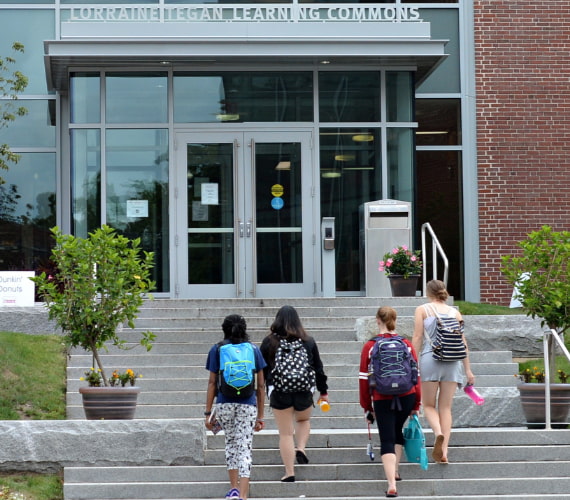According to National Student Clearinghouse), approximately 36 million Americans have completed some postsecondary education, but don’t hold a degree. For those who have some college credits but haven’t yet completed their degree, completing their education through a degree completion program is an excellent option. Here are some reasons you should consider returning to school to complete your degree, as well as some important factors to think about before making a final decision.
Reasons to Return To College
There are several reasons to consider returning to college. Whether you're looking for a career change, or trying to complete an unfinished degree, here are some of the most common reasons you might want to consider finishing your college education.
Occupational Mandate
Some career paths only require a high school diploma or associate's degree. For some employers or industries, however, a bachelor's degree is the minimum level of education required to obtain a job. For example, most hospitals in the Greater Boston area currently only accept Registered Nurse applicants with at least a bachelor's degree in nursing (BSN).
Personal Achievement
For some, particularly first-generation and adult students, a college degree is about more than improved career prospects. While salary and professional opportunities are certainly a factor, personal achievement is often an important motivator for some students looking to complete their college education. Whether you've started a degree program or have bulk college credit that never amounted to a degree, a college degree is a meaningful reflection of effort you've put into your personal growth.
Professional Growth
Returning to college is typically used to help achieve career goals. Even if your employer or field doesn’t mandate a college degree, returning to school may give you a competitive edge when applying to new positions and even open doors to additional job opportunities. This can include management positions in your current place of employment or a position with a new company that offers increased opportunities.
Higher Salary
According to the Bureau of Labor Statistics, bachelor's degree holders earn more than $22,000 more annually than those who have completed some college education but don't hold a degree. Similarly, college students who graduate with a bachelor's degree average $19,000 more per year than associate’s degree holders. While college tuition costs are high, completing your degree can be an excellent long-term investment and lead to a higher salary in your career field.
3 Things to Consider Before Returning to College
While there are many reasons you should consider returning to college, it's important to be aware of the financial and personal impacts of this path. Here are three important considerations you should take into account before making a final decision.
1. Financial Implications
Make sure you're aware of the financial investment required to return to college. Ensure you have the financial ability to support yourself, and any dependents, while you invest time and money into your education. Ask yourself questions like:
- Can I afford this program? Make sure you can afford the college costs of completing your degree.
- What are my options for financing your education? Reach out to the financial aid offices of the colleges you're considering to see what financing options are available to you.
- Will the financial investment be worth it? Familiarize yourself with the industry you're pursuing to see whether a degree is required, and how much you can earn following graduation.
2. Support
Since returning to school requires an investment of both time and money, it's important to make sure you have a solid support system in place. Do you have support from your family? Will your employer support your decision to go back to school if you need a flexible work schedule? Think about these logistics and consider having candid conversations with all relevant parties.
3. Time Management
Going back to college is time consuming. If you’ll need to juggle a full or part-time job to finance your education (especially if you have a family to support), make sure you have the time needed to complete assignments and engage with your education. This may require making sacrifices in your life to make room for your degree. If you're worried about the amount of time required to complete your degree, consider an online or hybrid program that allows for more flexibility.
Finding the Right Degree Completion Program
If you’re ready to return to college for degree completion, it’s important to find a program that suits your needs. These programs can vary widely—from prerequisites to academic requirements to remain enrolled. In your search, make sure you’re looking for a program that is flexible and offers the right degree.
Think about researching the following items as you look for the right program:
- Do they offer online, in-person, or flexible class arrangements? How do they transfer existing credits? Can you maximize what you’ve done already?
- Do they offer the degree you’re looking for or your employer requires?
- Does the program offer other opportunities you may be looking for, such as additional educational support, student life, or professional opportunities?
Keep in mind that it’s okay to take your time to ensure you’ve considered all the important factors. Once you’re ready, however, consider the degree completion programs Regis College has to offer. These programs are held both in-person or online so that you can continue working while earning your degree.




